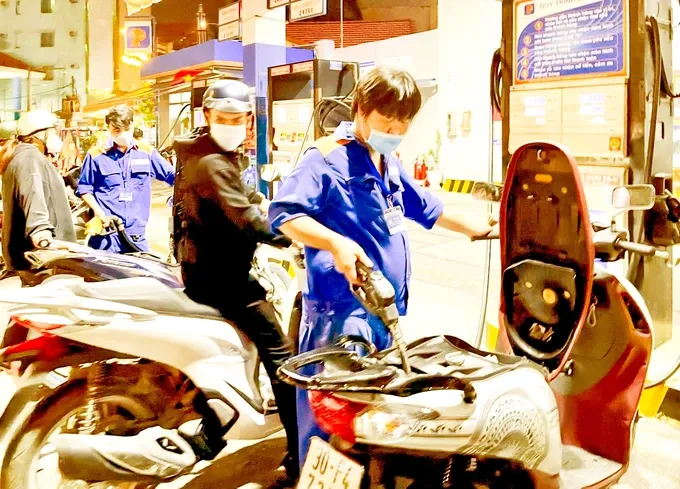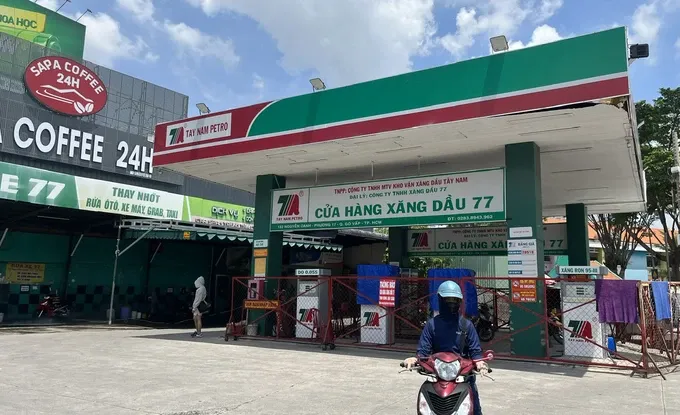
The director of a fuel station chain in the Central Highlands region revealed that he had leased out several stations and invested in a 20-hectare orchard to cultivate various fruits and coffee. According to him, agriculture has become more profitable than the fuel business in the current economic climate.
This situation is reflective of the challenges faced by many fuel retailers as extremely low profit margins have made the business unappealing. To break even after accounting for costs such as transportation and salaries, fuel retailers require a profit margin of around VND1,000 (US$0.04) per liter. However, with current margins fluctuating between VND500-700 ($0.02-0.03) per liter, businesses have been forced to operate at a loss.
Additionally, temperature differences during transportation lead to significant fuel losses. A fuel retailer in Son La Province analyzed that temperatures in Region 1 typically range from 30-36°C. When fuel is transported over 430 km to Region 2, where temperatures drop to 29-30°C, significant fuel loss occurs. It is estimated that a 1°C decrease in temperature results in a loss of approximately 13 liters of fuel per 10 cubic meters. With larger quantities, losses increase further, not to mention additional losses during the transfer of fuel to lower-temperature storage tanks.
Director Nguyen Thi Sinh of Chien Thang Petroleum Co. in Yen Bai City (Yen Bai Province), shared that many individuals have left the fuel industry. Retail businesses can barely cover their basic operating costs, and some are even operating at a loss.
In contrast to the struggles of small-scale fuel businesses, some large conglomerates in the industry have reported significant profits. Notably, the Vietnam Petroleum Corporation (Petrolimex) recently announced a net profit of nearly VND1.53 trillion ($61.9 million) for the first half of 2024, a 135-percent increase compared to the same period last year. This growth is attributed to stable and profitable fuel operations and increased sales volume.

To address this paradox and provide input on the draft fuel trading decree, businesses have made numerous recommendations regarding market transparency and right ensuring of both retailers and consumers.
As to fuel price, Director Nguyen Xuan Thang of Hai Au Phat Co. in Lam Dong Province suggested that the base price should be determined up to domestic ports and should include costs, storage, and profits associated with distributing fuel to consumers.
Additionally, it is necessary to calculate the cost for retail enterprises, where the retail fuel price is equal to the second-level wholesale price plus the corresponding standard cost and profit (not less than the value enjoyed by the source and distribution), and the retail enterprise or agent decides the selling price.
Businesses have also called for the government to review and revoke licenses of wholesalers and distributors that do not meet the required conditions, while allowing the entire system to operate freely. They have also requested that state management agencies inspect, handle, and publicize the increasing volume of fuel resulting from imports and temperature differences in domestic wholesale operations. This would ensure adequate tax collection for the government and prevent smuggling and tax evasion.
Nguyen Trung Dung, former General Director of the Petroleum Additives and Oil Products Development JSC. (APP), suggested that the government should implement policies to protect and ensure the effective operation of fuel stations, preventing large corporations from monopolizing the market since this industry is a conditional one.
Dr. Giang Chan Tay, Director of Boi Ngoc Co. Ltd. (operating in the fuel business in Tra Vinh Province), emphasized that the heartfelt recommendations of fuel retailers should be carefully considered by government agencies to ensure the legitimate rights of both businesses and consumers.
He expressed hope that the Ministry of Industry and Trade would listen to these suggestions and incorporate them into the fuel business decree to stabilize the market and create a favorable environment for the healthy development of retail businesses, especially small and medium-sized enterprises.
In related news, on October 2, Minister of Industry and Trade Nguyen Hong Dien chaired a conference to discuss and finalize the draft fuel trading decree. As fuel is considered a strategic commodity, the decree must balance market mechanisms with government regulations.
This is the fourth time the Ministry of Industry and Trade has sought input from ministries and agencies through both written submissions and direct consultations. The ministry has also committed to considering all feedback and adhering to government directives, aiming to design a document that maximizes market forces while ensuring effective government management.
























